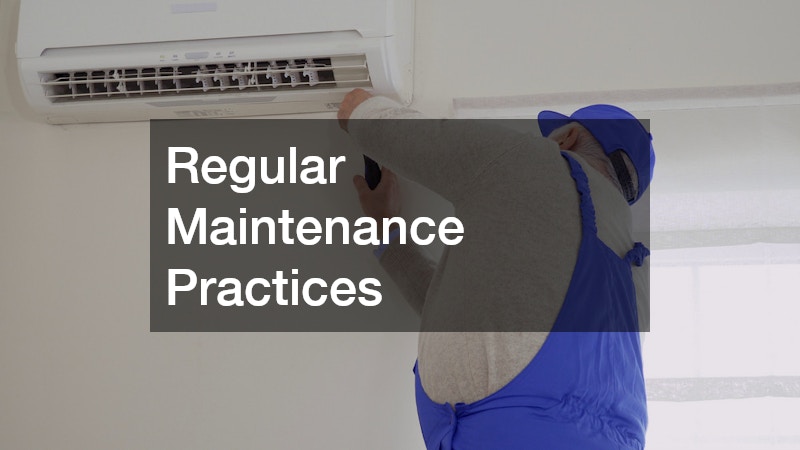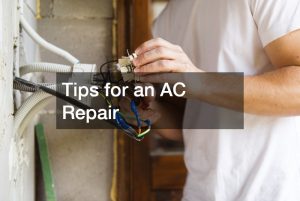As temperatures continue to soar, having a functional air conditioning system becomes imperative. Many homeowners overlook the importance of regular maintenance, leading to unexpected AC repairs at the most inconvenient times. This article delves into effective tips for AC repair, helping you keep your cooling system in optimal condition and ensure a comfortable home environment.
Understanding the basic components and functions of your air conditioning system is crucial for identifying potential issues early. Knowing when to call a professional for AC repair versus attempting a DIY fix can save you time, money, and discomfort during the sweltering summer months.
By following some proactive tips and learning more about AC repair, you can extend the lifespan of your unit and maintain its efficiency.
Our aim is to provide clear guidance and practical advice for homeowners who want to handle minor AC repairs themselves. With the correct approach and the right tools, numerous common issues can be addressed without expert intervention. Let’s explore some valuable tips for AC repair that will help you avoid costly breakdowns and maintain a cool home environment.
Understanding Your Air Conditioning System
Before you embark on any repair efforts, it’s essential to understand the basics of how your system works. Typically, an air conditioning unit comprises a compressor, condenser coils, and evaporator coils, all working together to cool your home. Familiarizing yourself with these components will help you diagnose where issues may be occurring.
Each part of the AC system has distinct functions; the compressor pressurizes the refrigerant, the condenser coil releases the heat outside, and the evaporator coil cools the air that is recirculated into your home. An underperforming unit often means a minor, fixable issue, so understanding the system layout can guide your repair strategy.
Regularly inspecting your AC system for signs of wear and tear can prevent small problems from escalating. Listen for unusual noises, and observe if there’s reduced cooling efficiency or visible leaks. These are early indicators that might require AC repair, and addressing them promptly can save you from more extensive repairs down the road.
Troubleshooting Common AC Problems
One of the first steps in AC repair involves troubleshooting to identify the cause of any issues. Common problems include inadequate cooling, unusual noises, and excessive energy consumption. Addressing these promptly can prevent more significant issues from developing.
If you notice your AC is not cooling effectively, check the thermostat settings and ensure it is set to the desired temperature. A dirty air filter might also restrict airflow, causing inadequate cooling. Ensure the filter is clean and replace it every few months as part of routine maintenance.
Unusual noises such as grinding or hissing can indicate a potential problem with internal components. These noises are often signs that parts such as the motor or fan are wearing out and may need repair or replacement. For complex issues like these, consulting with an AC repair technician can ensure safe and efficient resolution.
When to DIY and When to Call a Professional
Deciding whether to tackle an AC repair yourself or to call a professional depends on the issue’s complexity. Simple maintenance tasks like changing air filters or cleaning coils can often be handled by homeowners. However, more complicated problems such as refrigerant leaks or electrical faults are best left to the experts.
If you’re comfortable with DIY tasks, you can address issues like unclogging a condensate line or securing loose wires. These small-scale repairs can improve your AC’s performance and delay the need for professional intervention. Nevertheless, ensuring safety should always be your top priority when working with electrical appliances.
Understanding your limitations is vital when it comes to AC repair. Complex repairs that involve the unit’s core components require specialized tools and expertise. If you are unsure about a repair, it’s wiser to engage a professional technician to prevent further damage to your system.
Regular Maintenance Tips
Cleaning and replacing air filters, checking thermostat settings, and inspecting ductwork should be part of your maintenance routine. Such measures enhance your system’s efficiency and reduce the risk of performance issues.
Additionally, scheduling annual check-ups with an AC technician can identify potential problems early. A technician will conduct a thorough inspection and tune-up, ensuring all components are functioning correctly. Preventative maintenance like this can save you substantial costs associated with unexpected breakdowns.
Understanding your air conditioning system and implementing regular maintenance practices are crucial for minimizing AC repair needs. While some repairs can be managed with DIY techniques, professionals should handle complex issues to ensure safety and system integrity. Investing time in routine checks and preventive measures will provide you with a reliable and efficient cooling system.
By applying these AC repair tips, you can enhance your system’s performance and avoid inconvenient surprises. A well-maintained air conditioner not only ensures a comfortable home environment but also contributes to energy savings and environmental sustainability. Ultimately, keeping your AC in top-notch condition requires attention, care, and timely interventions.
.




